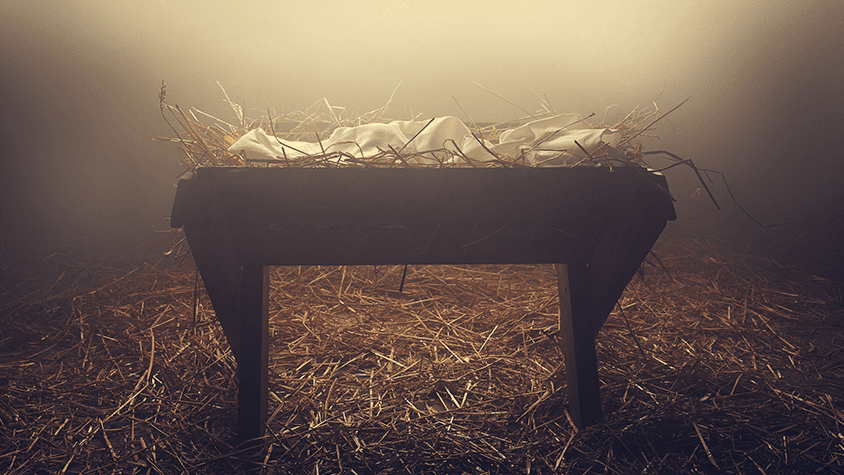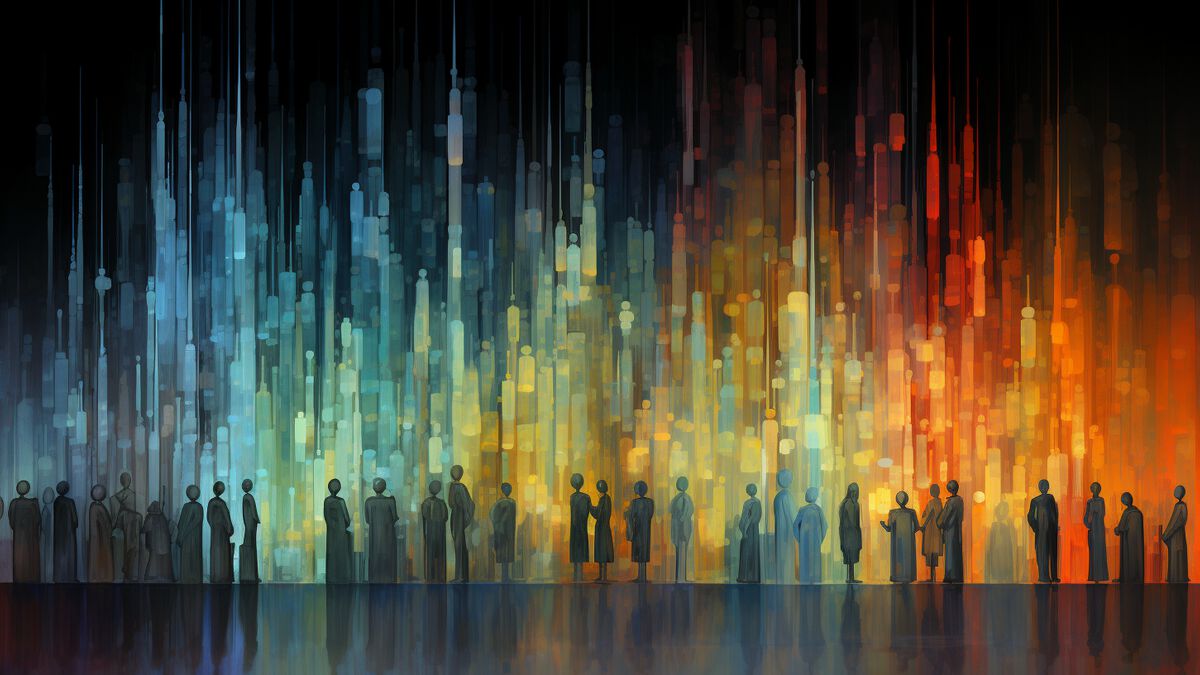Meditation on the Rebirth of Christ
Lincoln Cannon
24 December 2018 (updated 3 January 2026)

Saturday evening, I read about Catholic mass and communion. Sunday morning, I participated in sacrament at The Church of Jesus Christ of Latter-day Saints. Monday afternoon on Christmas eve, I’m reading the fifth chapter of the first epistle of John. In context of the holiday season, these experiences and words have drawn my attention to the birth of Jesus and the rebirth of Christ in each of us. They have drawn my attention to the core message of Christianity and Mormonism, which is human transformation into God – theosis.
“Everyone who believes that Jesus is the Christ is born of God.”
The Christ? That is the Messiah, the anointed. The anointed is a person who is symbolically designated to save us from our oppressors. To believe that Jesus is this savior is to believe that salvation has a particular meaning and comes in a particular way, as he teaches and exemplifies. The particular meaning is immortality and eternal life, overcoming those twin monsters, death and hell. And the particular way is spiritual transformation through trust in, change toward, and full immersion in the role of Christ, and physical transformation through transfiguration or resurrection. This belief, according to the scripture, makes us, like the baby in the manger, born of God. If God gives birth, God is a parent. In giving birth, parents give potential to their children to become like the parents. So, as all parents, God gives each of us potential to become like God. God is human potential.
“Everyone who loves the father loves his child as well.”
To love the father is to love a particular kind of God, the divine parent, also expressed in the divine mother. To love the divine parent is to love the God that is human potential. According to Jesus, the first and greatest command, the principal ethical principle that summarizes all others, is to love this God, our potential, with our entire being. And the second greatest command, he says, is like the first. It is implied by the first because of the nature of that God. The second command is to love others as we love ourselves. We are the divine children. If we love the divine parents then we love the divine children. We are inseparably connected, conceptually, one logically incoherent without the other.
“This is how we know that we love the children of God: by loving God and carrying out his commands.”
How do we love God? How do we obey the commands of God? We do both in the same way, as the scripture says:
“In fact, this is love for God: to keep his commands.”
We obey the first command by loving God, our potential, with our whole being. That is loving our potential more than we love that which we are now, but not in any way that inhibits our potential. We obey the second command by loving each other, as we are now, but not more than we love each other’s potential. The command is not to hate ourselves as we are now. To the contrary, “his commands are not burdensome, for everyone born of God overcomes the world.” Like Jesus, we are born of God. With him, we overcome the world as we now experience it in death and hell. It is not merely overcome for us. We overcome it. We overcome it together. As I console, heal, and raise you, you console, heal, and raise me. This command to love each other is not a burden. It is the relief of burden.
“This is the victory that has overcome the world, even our faith.”
Faith is trust in hope, expressed in action. Faith without action is dead. Faith with action is not waiting to be commanded in all things. Faith with action is to use the means, the knowledge and power, the science and technology, that God has provided. Faith with action is to use those means to feed the hungry, clothe the naked, console the sad, heal the sick, and raise the dead. Faith with action is to overcome the world as we now experience it in hell and death. Faith with action is victory over hell and death. Faith with action is immortality and eternal life.
“Who is it that overcomes the world?”
As for humanity, we suffer and die. We might despair. And despairing, truly, we wouldn’t act. We wouldn’t try to overcome the world as we now experience it in hell and death. And the only certainty is that we will not do that which we do not try to do. On the other hand, we might hope. And hoping, truly, we would act. We would try to overcome hell and death. Who, then, overcomes?
“Only the one who believes that Jesus is the Son of God.”
Only the one who acts; only the one who trusts; only the one who hopes; only the one who believes, perhaps propositionally but at least and far more importantly in function, in human potential to become like God: only this one, if anyone, will overcome – and overcome for others.
“We know also that the Son of God has come and has given us understanding, so that we may know him who is true.”
Jesus teaches and exemplifies that which is trustworthy. What is that?
“We are in him who is true by being in his Son Jesus Christ.”
We are part of that which is trustworthy. And what is that?
“He is the true God and eternal life.”
The God worthy of trust is the one of which we are a part, in potential as children, as the culmination of our transformation. Is there any other God worthy of trust? No.
“Dear children, keep yourselves from idols.”
Friends, may Christ be reborn in you today, not only in name but also in power. Merry Christmas!


